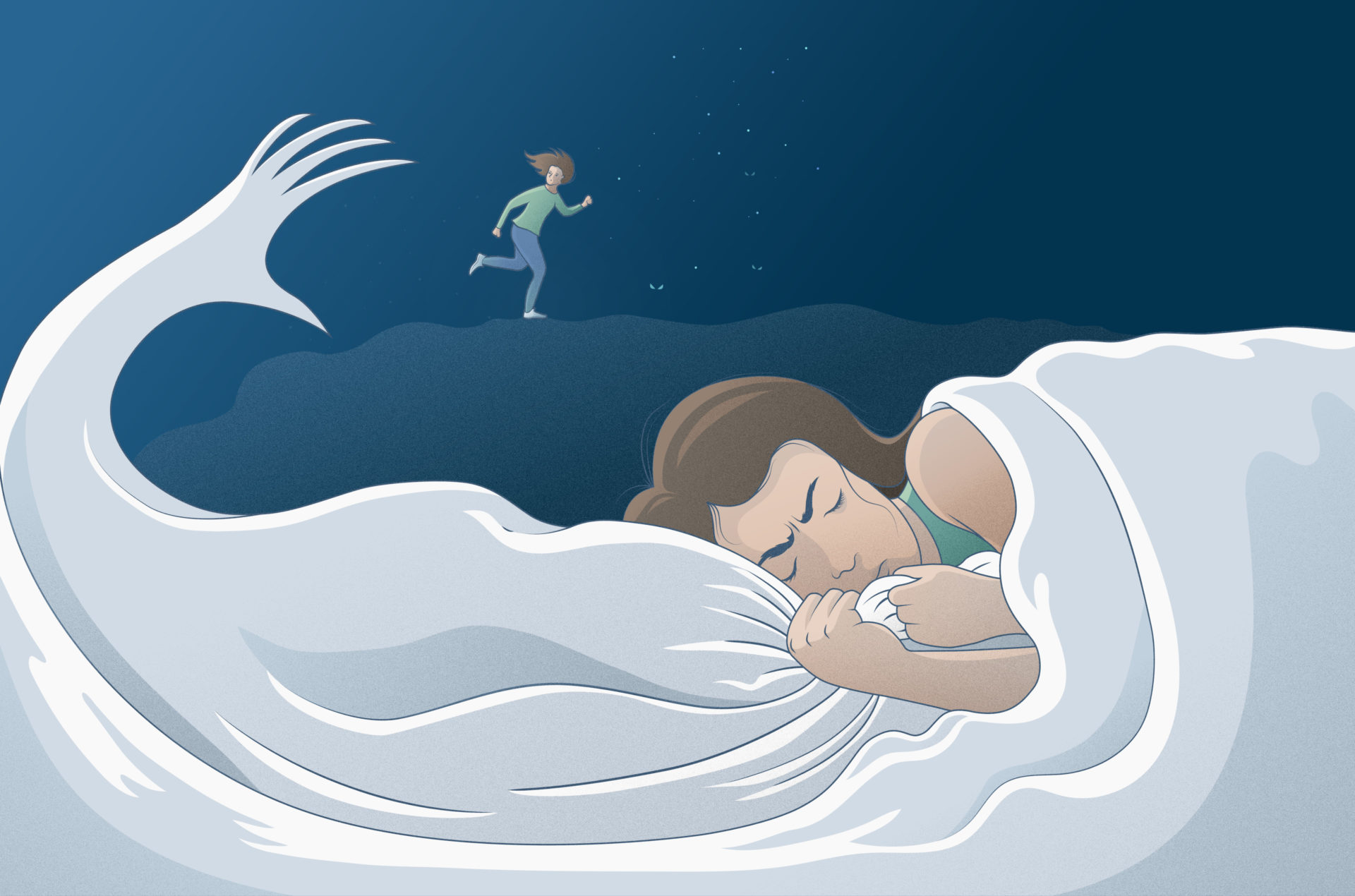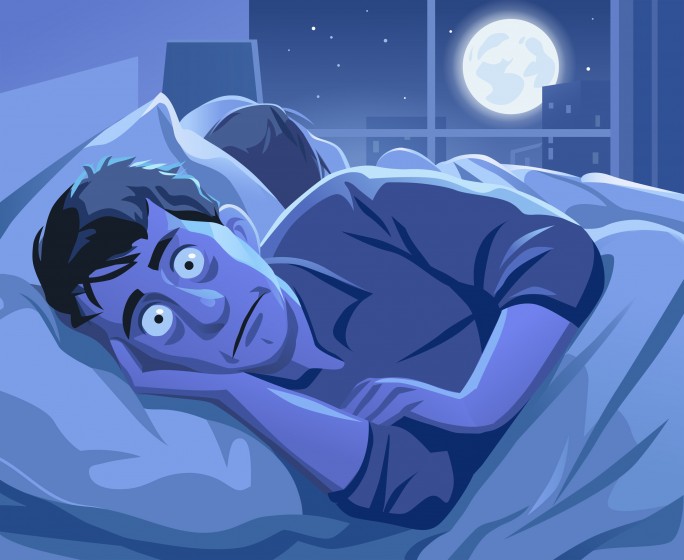While there is no universal agreement on why trauma affects our dreams, scientists have long been intrigued by this link. Sigmund Freud, the founder of psychoanalysis, provided an early perspective, claiming that dreams provide access to the unconscious. Dreams, he proposed protected sleep by containing the anxiety associated with suppressed desires.
Later hypotheses were developed in response to war veterans’ repeated nightmares1. Dreams, according to researchers, allowed people to revisit and attempt to work through old trauma. Nightmares were frequently interpreted as a failure to process or master the trauma. Other researchers believed nightmares were a way for the mind to transform shame associated with the traumatic event into fear.

While science has progressed significantly since Freud’s time, more recent hypotheses are surprisingly consistent with his early ideas. 2. Dreams, according to many neuroscientists and psychologists, aid in the integration of our experiences into long-term memory, a process known as memory consolidation3. When we have traumatic experiences, our dreams may reflect our bodies’ attempts to cope with and learn from these situations4.
Dreams can simulate threatening events and allow us to experiment with various responses5. Being exposed to threats while safely asleep may reduce our fears and allow us to access other areas of the brain that are important for creativity and decision making. This idea is supported by research, which shows that we are more likely in our dreams to approach threatening situations rather than avoid them.
Nightmares and PTSD
Nightmares are a fairly common occurrence, with between 4 and 10% of the population7 experiencing them on a weekly basis. Nightmares are more common after experiencing a traumatic event.
Nightmares may be an intense expression of the body working through traumatic experiences, so intense that the sleeper awakens as a result of the nightmare. Nightmares may also be an indication of a breakdown in the body’s ability to process trauma. Fortunately, most people’s trauma-related nightmares fade away after a few weeks or months.
In order to protect us from harm, the body’s fight-flight-freeze response is activated during a frightening event. As the body releases stress hormones, our pupils dilate, and our heart rate rises, we become hypersensitive to danger. This alarm system usually quiets down and returns to normal operation after we’ve had time to process a traumatic experience.
Long-term, recurring nightmares are associated with difficulties in reducing the brain’s fear response, as well as chronic hyperarousal8. Long after a traumatic experience has ended, the fight-flight-freeze response can remain activated.
While not all people who have repetitive nightmares have a mental health disorder, these nightmares are common in people with post-traumatic stress disorder (PTSD). It is estimated that PTSD affects less than 10% of trauma victims.
PTSD is a disorder that occurs as a result of a traumatic event10. People with this disorder experience recurring and involuntary memories of the event, which can occur during the day (e.g., flashbacks) or while sleeping (nightmares). People suffering from PTSD frequently avoid both external (people, places, and activities) and internal (memories, thoughts, or feelings) reminders of the event. People around them may notice changes in their mood as they become more easily startled and hypersensitive to potential danger.
Can Nightmares Cause Trauma?
It can be unsettling to have vivid dreams or wake up with clear memories of nightmares. While the hypothesis that nightmares can cause trauma has not received much attention, the answer to this question may depend on how trauma is defined.

What constitutes a traumatic experience has evolved over time11. Initially, trauma was thought to be only possible when a person was awake, and psychologists reserved this label for events that were outside the scope of normal human experiences. Later definitions of trauma have broadened the definition, recognizing the many sources of traumatic experiences as well as the effect of cumulative traumas.
Trauma can be experienced directly or indirectly, according to the Diagnostic and Statistical Manual of Mental Disorders (DSM–5). This means that we don’t have to witness something in order to develop trauma. Teachers, counselors, and psychologists, for example, may develop secondary or vicarious trauma as a result of hearing about the traumas experienced by those they serve on a regular basis. It is still unclear whether dreams can cause indirect trauma.
The ability of nightmares to cause trauma may also be influenced by a person’s culture. Historically, Western dream theories have concentrated on how waking life influences dream content. In other cultures, such as several Native American traditions12, there is less separation between the dreaming and waking worlds, and dreams can have a significant impact on waking life. Dreams have strong spiritual connotations in many cultural traditions, so it’s understandable that they can be a traumatic experience for many people.
Treatment for Nightmares
Many people want to forget what happened and move on after a traumatic experience. Unfortunately, attempting to forget or suppress thoughts and feelings may increase the frequency of trauma-related nightmares13.
Knowing when to seek assistance is an important part of coping with trauma. Doctors, counselors, and therapists are trained to treat nightmares and other traumatic event consequences.
Nightmares and difficulty sleeping are common reactions to crises and trauma, and many people recover from trauma-related dreams without seeking treatment. Others may be concerned that these issues will lead to the development of a more serious condition, such as PTSD.
Sleep Hygiene After Trauma
When coping with the effects of trauma, it may be beneficial to consider strategies to support healthy sleep hygiene in addition to seeking professional help.
- Remember that some symptoms are normal: It’s normal to have trouble sleeping right after a traumatic experience. Remember that your body is attempting to process and cope with the event, so be gentle with yourself.
- Maintain your usual sleeping routine: Sleep and routine are inextricably linked. Following a traumatic event, it may be tempting to withdraw or change our normal daily activities. Maintain your regular sleeping schedule to give your body the best chance of a restful night’s sleep.
- Relax before bed: Instead of attempting to force yourself to sleep, concentrate on finding ways to calm your mind and body before bed. Turn off all electronics and try some relaxation techniques to help you fall asleep.
- If you are unable to sleep, do not remain in bed: Staying in bed when you can’t sleep can create an unhelpful association between the bed and insomnia. If you’ve been awake for more than 20 minutes, get out of bed and do something relaxing, such as reading a book or listening to soft music.
Trauma can increase the risk of a variety of mental and physical health problems, including suicide. If you or someone you know is in crisis, the National Suicide Prevention Lifeline offers free and confidential support 24 hours a day, seven days a week.

